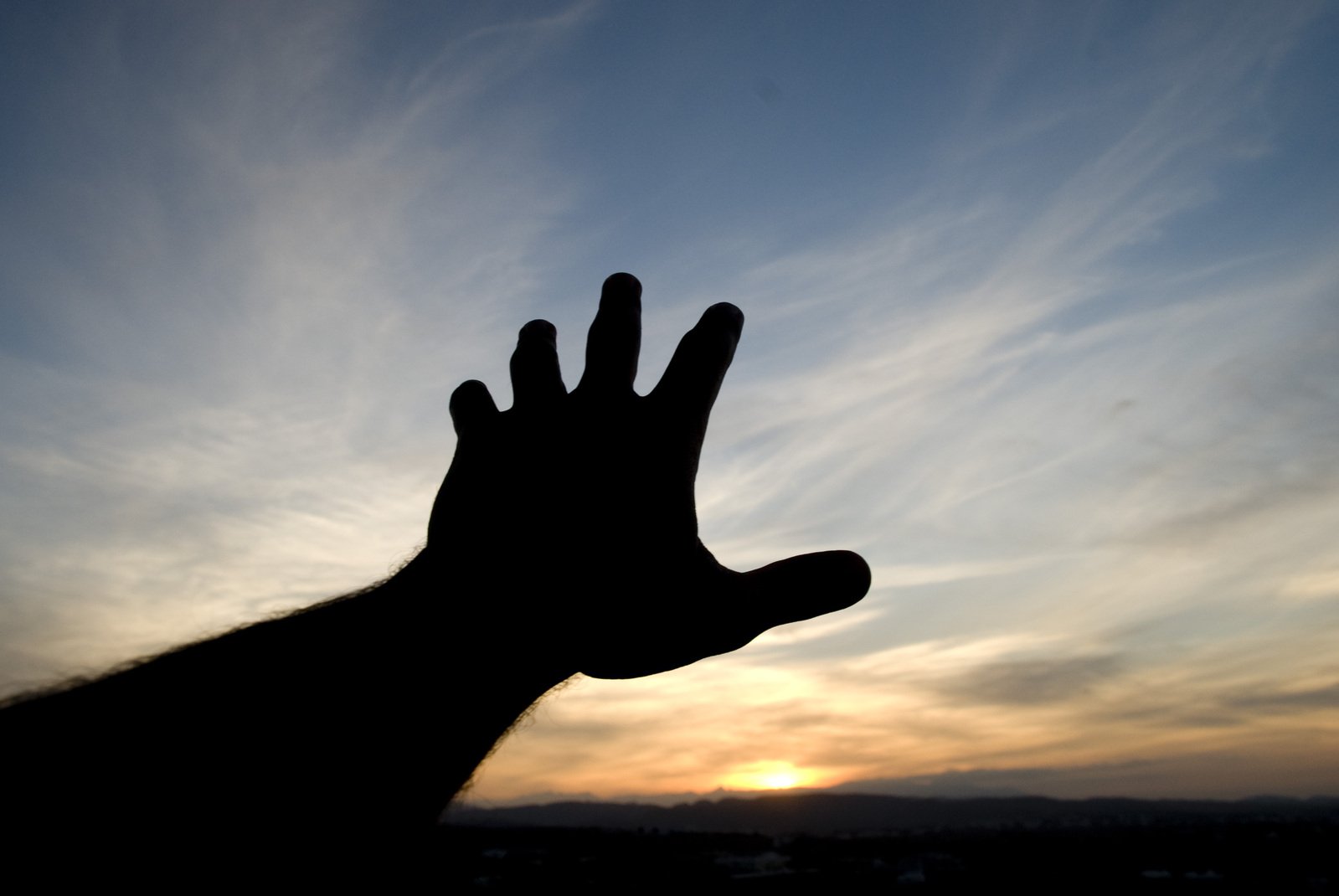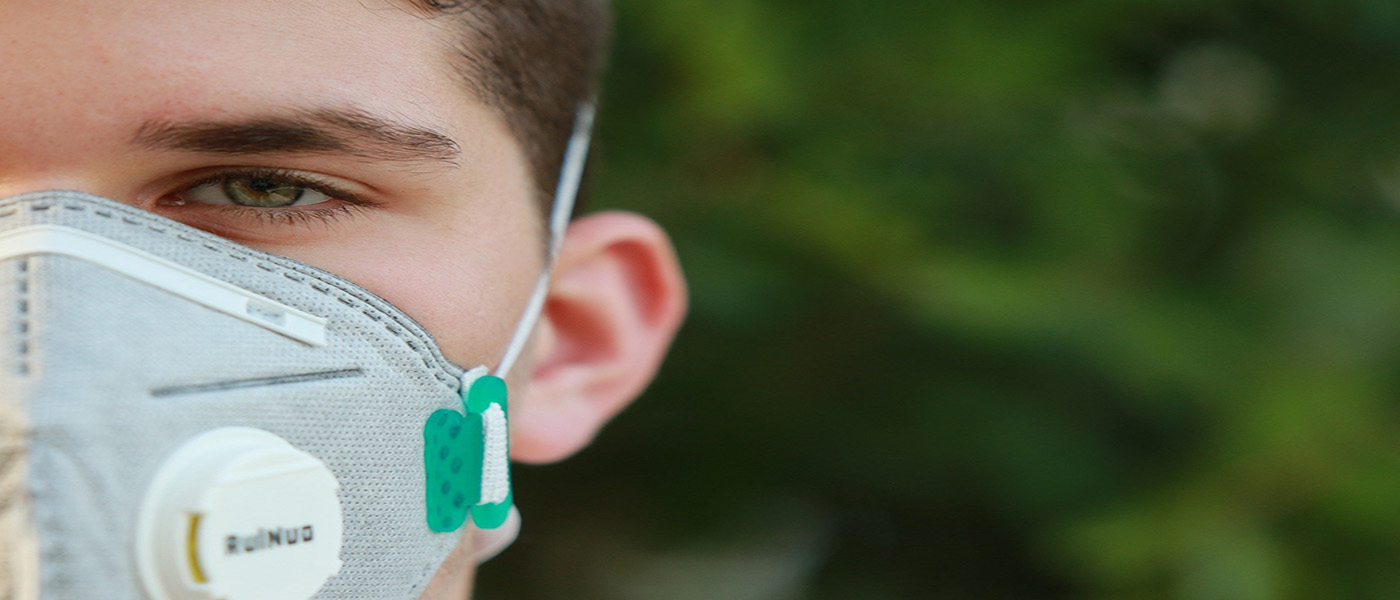

What Does Islam Say about Original Sin?
Our knowledge about Prophet Adam and his wife Eve, unlike our knowledge about other prophets, is very little. There are so many books written and so many films made about different prophets, but when it comes to Adam and Eve, we usually face a bunch of jokes about them; most common is that they were lucky not have any in-laws! And after all the jokes we end up blaming them for having sinned and having brought the human generation on earth in this miserable, sinful world.
It is a shame that we usually speak less about the status of Adam and Eve and there is not much information about them, available to the public, to show their status.
In this article, we will study the status of Adam and Eve and compare the Christian view on the concept of original sin with the Islamic viewpoint on the same topic.
Christian’s Opinion on the Concept of Original Sin
In Christianity original sin is the rebellion of Adam and Eve in Eden, mainly in consuming from the forbidden tree, which resulted in the fall of man (from the state of innocent obedience to the state of guilty disobedience).
After huge discussions on the topic of original sin which was first raised by St. Augustine who stated “the deliberate sin of the first man is the cause of original sin”, Christian Catholic theologists accepted two main ideas about human condition in this world, believing in the fact that humans were supposed to live eternally in Eden; [1]
1. ‘Adam by his sin caused the fall of human generation on earth, and therefore as a result of this worldly life, he caused death for human generations.
2. Adam by his fault transmitted sin to human generation.’ [2]
According to Christian opinion, death and sin are transmitted to the human race by generation, "for as by the disobedience of one man, many [i.e., all men] were made sinners" (Romans 5:19). [3]
Now, let’s see how the story of Adam and Eve is explained in the Quran.
Prophet Adam in the Quran
There are four major parts from the story of Adam and Eve described in the Quran:
1. The creation of Adam, ordering the angels to prostrate before him and Satan’s disobedience. (20: 61, 18:50)
2. Adam and Eve’s settlement in paradise, their temptation by Satan, tasting from the forbidden tree. (20: 120-3)
3. Adam, Eve and Satan’s fall on earth where “In it you will live, and in it you will die, and from it you will be raised [from the dead].” (7: 25)
4. Adam and Eve’s repentance and choosing Adam by God. (20: 122)
Where Does the Story Start?
“When your Lord said to the angels, ‘Indeed I am going to set a viceroy on the earth,” (2:30) then He thought “the Names” to Adam and old the angels to prostrate for Adam, “they prostrated, but not Iblis: he refused and acted arrogantly, and he was one of the faithless.” (2: 34) Then God said: “O Adam, dwell with your mate in paradise and eat thereof freely whence so ever you wish, but do not approach this tree, lest you should be among the wrongdoers.” (2: 35)
Then Satan tempted them as he had sworn to tempt human generation, “Then Satan caused them to stumble from it, and he dislodged them from what [state] they were in.” (2: 36) Adam and Eve returned to God and asked for forgiveness based on their divine nature and “Then his Lord chose him, and turned to him clemently, and guided him.” (20: 122)
The Islamic View on the Concept of Original Sin
Unlike Christianity that discusses the concept of original sin from a theological aspect, almost all Muslim scholars discuss the issue based on the exegesis of the Quranic verses. It is also important to keep in mind that Muslims believe in the infallibility of prophets and to find out how the concept of original sin comes along with Prophet Adam’s infallibility.
Most important points about the concept of original sin from Muslim scholars’ viewpoint are as follows:
1. Were Humans supposed to remain eternally in heaven?
“When your Lord said to his angels, Indeed I am going to set a viceroy on the earth,” (2:30)
Based on the above verse and other similar verses, Fakhr-e Razi claims that Adam’s rejection from paradise was not because he sinned. Since God’s order to prevent them from tasting from the tree was not an obligation, but He said: “do not approach this tree, lest you should be among the wrongdoers.” (7: 19) And therefore they did not do a forbidden act.
In reply to those who admit the repentance of Adam shows that he committed a sin and therefore cannot be infallible, Fakhr-e Razi says that “prophets not only do not commit any sins but if they make a mistake they would repent from it as they know that these little mistakes would make the way broader for real sins” [4].
2. Staying on earth after God accepted their repentance
“Then Adam received certain words from his Lord, and He turned to him clemently. Indeed, He is the All-clement, the All-merciful.” (2:37)
As mentioned before, Allah (SWT) Accepted Adam and Eve’s repentance and turned to them. As Tabatabaei puts it, the necessity of accepted repentance is that the person would return to his/her previous situation, while Adam and Eve instead of returning to paradise stayed on earth and Adam was chosen and guided to be the guidance for his generation. [5]
Therefore according to Jawadi -Amoli tasting from the forbidden tree has been a part of the plan for Adam and Eve to be treated and prepared for living on earth where they have enemies, and they should not trust everyone as they trusted Satan; “He said, ‘Get down both of you from it, all together, being enemies of one another! Yet, should any guidance come to you from Me, those who follow My guidance will not go astray, nor will they be miserable.” (20: 123) [6]
Did Adam’s Sin Make His Generation Sinful?
Tabataei strongly disagrees with those who claim that the original sin made committing sins a necessity for the human generation. He states that the lordliness of God makes a space to order the right and forbid from wrong. Therefore, there will be punishment for wrongdoers and reward for righteous people.
He can also, based on His lordliness, bless those who commit a sin and repent of it. He continues that it is not logical to accept that human sin will go through generations and one’s sin will make others sinful as well. [7] As it is also mentioned in the Quran “, Every soul is hostage to what it has earned”, (74: 38) and not to what Adam (PBUH) or other human generations have done.
From the verse mentioned above, the concept of human free will is also concluded. Human beings will be punished or rewarded based on their acts. If human beings are forced to sin according to the concept of original sin, then the whole concept of human free will would be undermined. And as a result, the promises that God gives us about the hereafter and facing the results of our deeds will be meaningless. As Imam al-Sadiq (AS) mentions “God is more just than to force a servant on a (wrong) task and then punishes him because of that.” [8]
The story of Adam and Eve is not for us to find out if Adam was sinful or not. It is rather a symbolic story that should teach us lessons for having a successful life in this world. Our story from birth to death has a lot in common with the story of our father, Adam. We were born innocent. We grew up and started tasting from different forbidden fruits. We gradually descended from our human status, instead of ascending towards God; “We certainly created man in the best of forms; then We relegated him to the lowest of the low, except those who have faith and do righteous deeds. There will be an everlasting reward for them.” (95: 4- 6)
Every day is the time for us to repent of our sins and to beware of not being deceived by Satan.
‘O Children of Adam! Do not let Satan tempt you, like he expelled your parents from paradise, stripping them of their garments to expose to them their nakedness. Indeed he sees you—he and his hosts—whence you do not see them. We have indeed made the devils friends of those who have no faith.’ (7:27)
References:
- original sin
- ibid
- ibid
- Fakhr-e Razi, Muhammad ibn Amr, Mafatih al-Ghayb, p. 17
- Tabatabaei, Muahmmad Hossein, Al-Mizan, vol. 8. P.46
- Jawadi – Amoli, Abdullah, Tasneem, vol. 3, p. 328
- Tabatabaei, Muahmmad Hossein, Al-Mizan, vol. 1. Pp.133-137
- Sadouq, al-Tawhid, Section al-Qadha wa al- Qdar, Narration No. 28
Share This Article

A Seed of Hope and a successful life
What is “hope” and how important it is in our lives? Why do we need hope? How can we cultivate moments of hope in our lives and honour our hope in small ways even through hard times? In other words, How hope makes us successful? And what is the importance of hope for a believer?
A seed of hope is the beginning of every good thing in our livesHope gives birth to ?! life. It always believes for the best, even in the face of the worst circumstances.
For believers in Allah, hope is much more than a wish or a positive outlook; it is based on the promises of Allah found in His Word. They are promises to move on our behalf.
How can we hope in this world full of problems?
We can have hope in life no matter what surrounds us because we serve a mighty Allah who cares about us as knows us by name, and understands the desires of our hearts. “He knows whatever there is in the heavens and the earth, and He knows whatever you hide and whatever you disclose, and Allah knows best what is in the hearts”.[1] He who had known us before we were even formed in our mother’s womb. “Indeed the knowledge of the Hour (Resurrection) is with Allah. He sends down the rain, and He knows what is in the wombs. No soul knows what it will earn tomorrow, and no soul knows in what land it will die. Indeed Allah is The All-knowing, The All-aware”.[2]

Perhaps you are facing setbacks with your job or relationships. Maybe you are struggling financially or the pressures of life is just overwhelming you. If it applies to you, there is still hope! Allah is for you, not against you. His resources are endless As He says, “There is not a thing but that its sources are with Us, and We do not send it down except in a known measure”. [3] His power and love know no boundaries. Allah is on your side. Do not let the enemy, Satan, your thoughts, or anyone else tell you anything different. Keep hope alive and never give up! “Satan frightens you of poverty and prompts you to [commit] indecent acts. But Allah promises you His forgiveness and grace, and Allah is The All-bounteous, The All-knowing”. [4] Allah is a God of more than enough as He does not have any lack. He always has a solution and is ready to speak to you, encourage you and for some, to rescue you. Let me ask you where your hope is today. Is it in people; in your capabilities; in your occupation? Be encouraged and build your hope on nothing less than Allah himself. And put your trust in Him; He suffices as trustee “and He is an excellent trustee”. [5] He is your solid rock in which all other ground is sinking sand.
Hope today, hope now! Know that whoever hopes in Allah and trusts in Him, will never be/get disappointed. This is the right path and this is the way of salvation. Always remember this verse of the Holy Quran, “Say, nothing will befall us except what Allah has ordained for us. He is our master, and in Allah let all the faithful put their trust”.[6]
references
- (The Qur’an; 64:4)
- (The Qur’an; 31:34)
- (The Qur’an; 31:34)
- (The Qur’an; 31:34)
- (The Qur’an; 31:34)
- (The Qur’an; 9:51)
Read More

Is it Permissible not to Fast in Ramadan during the Coronavirus Pandemic?
Fasting is one of the most important rituals of Islam, and Muslims are required to fast during Ramadan, the ninth month of the Islamic calendar.
“O you who have faith! Prescribed for you is fasting as it was prescribed for those who were before you, so that you may be God wary” (2:183).
Now, as Ramadan is around the corner and the novel Coronavirus is continuing to spread globally, many Muslims worldwide are wondering if fasting could pose a higher risk of catching the COVID-19 virus, due to dehydration. They may raise some more questions, as is it safe to fast during this global pandemic? Doesn’t it weaken our immune system? And some wonder if they could be exempted from fasting to prevent catching this disease and remain healthy.
Let’s have a look at this question -to fast or not to fast? - from two different aspects: Science-based and religion-based.
Does Dehydration Make us More Prone to Catching Coronavirus?
According to the WHO and health experts’ recommendations, people are advised to drink plenty of water to prevent dehydration and stay healthy. Still, it will not prevent anyone from catching the new Coronavirus.
“Dr. William Schaffner, an infectious-diseases expert at Vanderbilt University, said the claims are incorrect. While medical professionals typically recommend keeping up fluid intake, Schaffner said drinking more water will not keep anyone from catching the virus. “We always caution anyone healthy and people who are sick to keep up the fluid intake and keep mucus membranes moist,” he said. “It makes you feel better; there is no clear indication that it directly protects you against complications.” [1]
Does Fasting Weaken our Immune System?
No, in fact, many scientific studies have shown the wide-ranging health benefits of intermittent fasting in boosting our immune system and living a longer life. The New England Journal of Medicine has recently published a review of research on the beneficial effects of intermittent fasting on health, aging, and disease:
“Evidence is accumulating that eating in a 6-hour period and fasting for 18 hours can trigger a metabolic switch from glucose-based to ketone-based energy, with increased stress resistance, increased longevity, and a decreased incidence of diseases, including cancer and obesity.” [2]
Even more interestingly, although some study claims that prolonged water fasting could have a slightly detrimental effect on the immune system, it also shows that immunity returns to a better state soon after eating and drinking again. [3]
What Do Islamic Jurists Say about Fasting during this Pandemic?
First of all, the obligation of fasting during the holy month of Ramadan is an individual duty, and anyone who has the conditions to do so must fast, regardless of whether it is obligatory for others or not. According to Ayatollah Sayyid Ali Sistani, one of the well-known Islamic jurists, if a Muslim fears that he/she will catch Coronavirus, even if he/she takes all precautionary measures, he/she will be relieved of the obligation for each day he/she remains in fear of catching the disease – if he/she were to fast. However, if he/she can reduce the probability of catching the disease so that it becomes reasonably insignificant – even by staying at home and not mixing closely with others, using a mask, medical gloves, frequent disinfection and so on – such that it does not cause unbearable difficulties for the individual, his/her obligation to fast is not waived. [4]
Another Islamic jurist follows the same line and adds that if a doctor forbids someone from fasting, due to the high risk of getting this virus, that person is not allowed to fast. But this should not lead to disrespecting others that fast and eating in public [5]. Many other Islamic jurists also confirm the fact that one should decide if fasting is risky for him/her or not. If “an individual has a reason to believe that fasting will cause illness, intensify or prolong an illness, or delay one’s recuperation,” he/she is not obliged to fast. But he/she should make up for the missed fastings later in the year [6]. However, some other Islamic jurists consider fasting an obligatory practice whose obligation is not lifted in this period, except if one thinks there is a high probability of getting the disease by fasting [7].
After all, it is essential to note that fasting in Islam is expected of those who are healthy enough to do so: “Allah desires ease for you, and He does not desire hardship for you” (2:185)
And sick people who fear that fasting may make them worse, risk their health or slow down their recovery are permitted not to fast:
“But should any of you be sick or on a journey, let it be a [similar] number of other days. Those who find it straining shall be liable to atonement by feeding a needy person” (2:184).
In conclusion, regarding the feedback received from the World Health Organization, fasting has nothing to do with the possibility of an increased risk of catching coronavirus. On the other hand, it is not easy to say for sure whether fasting offers some level of protection and immunity against the COVID-19 virus during this global crisis, so we’d better stick to the things we know would work: social distancing, avoiding gatherings, performing rituals separately, hand-washing, hygiene, and self-isolation.
References:
Read More

